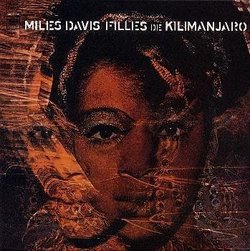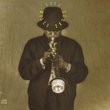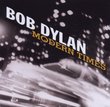| All Artists: Miles Davis Title: Filles De Kilimanjaro Members Wishing: 0 Total Copies: 0 Label: Sony Album Type: Original recording remastered, Import Genre: Jazz Styles: Jazz Fusion, Modern Postbebop, Bebop Number of Discs: 1 SwapaCD Credits: 1 |
Search - Miles Davis :: Filles De Kilimanjaro
 | Miles Davis Filles De Kilimanjaro Genre: Jazz
Japanese reissue of the late jazz great's 1969 album originally released on Columbia. Remastered & packaged in a miniature LP sleeve. 2000 release. |
Larger Image |
CD DetailsSynopsis
Album Description Japanese reissue of the late jazz great's 1969 album originally released on Columbia. Remastered & packaged in a miniature LP sleeve. 2000 release. Similar CDsSimilarly Requested CDs
|
CD ReviewsMulti-layered textures Enrique Torres | San Diegotitlan, Califas | 03/02/2007 (4 out of 5 stars) "To understand the music of Miles Davis you have to listen to the different periods; this disc is a transitional LP that offers insights into "Bitches Brew", "In a Silent Way" and his fusion period. Traces of the old cool period Miles are here as well. The title track,"Files de Kilimanjaro" is a perfect example of the old Miles transforming into the new, more electric but ever eclectic Miles. Always surrounding himself with the best musicians he could find, this disc features Wayne Shorter on sax ,for the old school jazz sound, juxtaposed by Herbie Hancock on piano and electric piano and complimented by veteran, stalwart, Ron Carter on bass and driven by young, Tony Williams on drums. Chick Corea replaces Hancock on electric piano on several tracks while Dave Holland replaces Carter on bass for an unusual lineup change. The lingering electric piano runs by Hancock on "Files de Kilimanjaro" play counterpoint to Davis's Bitchesbrewesque solos resulting in challenging sounds that were than unheard of. Miles always seemed to surprise, pushing the envelope, as on this disc, to uncharted areas and new heights. It is evident that he challenges his musicians as well because they seem to be playing outside themselves as well at times. When the personnel changes, as on "Mademoiselle Mabry," the music seems to go back to the old cool Miles period, occasioanlly venturing into new territories but staying within the parameters of cool jazz. There is a certain density to this disc that defies logic because of the transitional nature of the music;sometimes cutting edge sometimes old school. Wayne Shorter lends to the classic jazz, old school sound to certain tracks, like on the aforementioned, playing Coltraneish runs on the tenor sax, reminiscent of the days when John Coltrane was a sideman for Miles. By contrast, on "Frelon Brun" the electric piano of Herbie Hancock opens up for Miles Bitchesbrewesque solos but again, old school runs on the sax by Shorter that sound like Coltrane. Miles leads his group of musicians like migratory birds, only settling for a short period into a defineable groove before moving on. Some of the loveliest sounds coming out of this disc are when Shorter and Miles blow in unison; unfortunately it is not often enough. This is a complex CD but easy enough to listen to if you are a Miles Davis fan. Recommended for jazz aficionados old and new." (3.5 stars) Transitional and slightly meandering, but unfair finulanu | Here, there, and everywhere | 07/09/2007 (4 out of 5 stars) "You don't see anybody jumping out of their seat to defend this one, and it is very much a transitional album: he's moving towards fusion (heavy use of electric piano and bass guitar), but isn't quite there yet: there's not a single guitar solo on the album, and funk rhythms are rarely heard (they are used in "Mademoiselle Marby", though). The sound of the record is also caught in the middle: that is, rock and occasional funk rhythms, but blues chord changes and standard jazz instrumentation. This is a good album, however, though the ten-minute plus pieces ("Mademoiselle Marby"; "Tout de Suite"; title song) do wander a bit (especially "Mademoiselle Marby" - I was ready for it to end five minutes before it actually did). As usual though, Tony Williams' drumming is sterling, and the electric keyboards are always used tastefully ("Petits Machins (Little Stuff)"). The intensity is generally kept low, other than on "Frelon Brun (Brown Hornet)" - a killer opening track. This marked the last appearance of the Shorter/Hancock/Carter/Williams group: they appear on all but the first and last song, where Carter is replaced by Dave Holland and Hancock, by Chick Corea. I think the sound and mood presented on the three longer pieces would later blossom on In a Silent Way, though it doesn't sound bad at all found here."
|

 Track Listings (5) - Disc #1
Track Listings (5) - Disc #1

